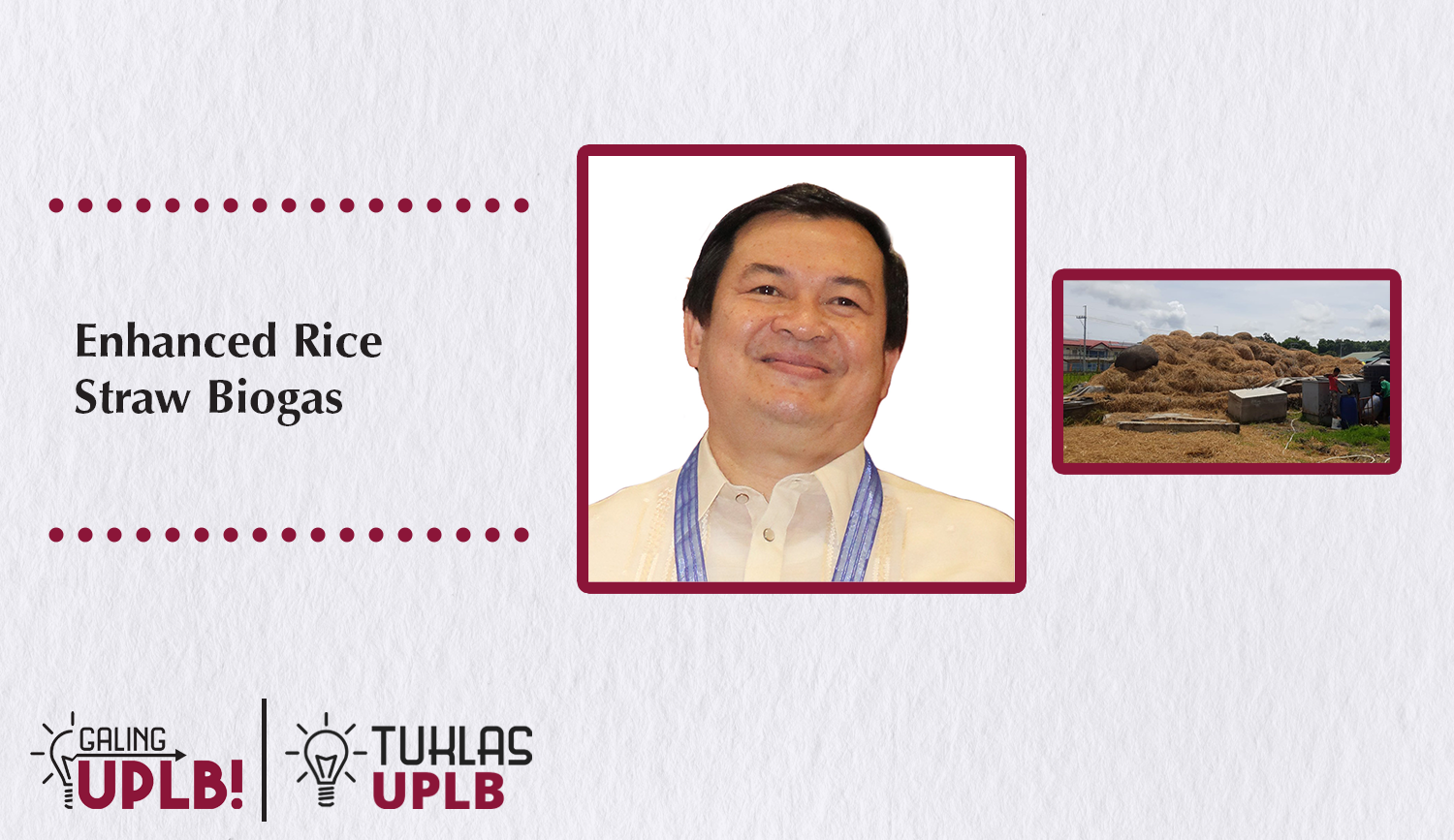
A team from UPLB joined a research project that produced cost-efficient innovations on turning rice straw into a clean and affordable energy to help farmers and the environment.
Rice straw is a waste produced from harvesting rice. It is often burned or left in the field where it emits methane — a greenhouse gas (GHG) that causes global warming. But this waste can turn into a resource if managed properly, which is the focus of the collaborative project among UPLB, Straw Innovations Ltd., and Aston University.
The collaborative project, titled “Enhanced Rice Straw Biogas”, aims to address the concern on rice straw management in the Philippines, covering the environmental and social aspects of producing biogas from the waste.
Dr. Rex B. Demafelis, professor at the UPLB College of Agro-Industrial Technology and one of the project leaders, talked about their venture during an interview at Radyo DZLB’s Tuklas UPLB segment last March 11.
Although turning rice straw into bioenergy is not a new endeavor, the team innovated how rice straws are managed. Through their innovations, farmers can harvest rice grains and straw and speed up the process of biogas production for a lower cost. They also found a method of drying rice that can increase the profit and reduce losses of farmers.
The team turned an ubiquitous waste into a resource that can not only provide additional income for farmers but also reduce the impact of GHGs to the environment.
In 2020, the country produced around 27 million tons of rice straw. Dr. Demafelis said that if the biogas production is properly managed within four months, the country can produce 1.4 million liters of biogas. It can be used by rice farmers to dry grains and to pump water for irrigation.
The team’s innovation is also a “low-tech production system” that can be easily adopted by farmers, which is one of the goals of the project. “Hindi siya mahal, hindi complicated, very simple and madali siyang ma-transfer to farmers and farmer groups,” [It’s not expensive, not complicated, very simple, and easy to transfer to farmers and farmer groups.] Dr. Demafelis said.
In fact, the team has been working closely with farmers from Victoria, Laguna. They source their rice straws and consult the farmers from the town.
However, farmers tend to have a wait-and-see attitude towards new technologies which Dr. Demafelis also experienced during his previous work with sweet sorghum as biofuel materials. But the project leader intends to convince their target users that the technology will be beneficial.
To further promote the adoption of the technology, the team held a workshop on March 30 with key agencies and stakeholders, particularly the Climate Change Commission and the Department of Agriculture’s Climate Change Program. They wanted to show the benefits that can be derived from biogas production, especially with the country’s commitment to reduce GHGs in line with the Paris Agreement, an international treaty on climate change.
Tuklas UPLB airs every second and fourth Friday of the month as part of Radyo DZLB’s Galing UPLB! Program. This program is jointly produced by the UPLB College of Development Communication, Office of the Vice Chancellor for Research and Extension, Office of Public Relations, and Office of Alumni Relations.
